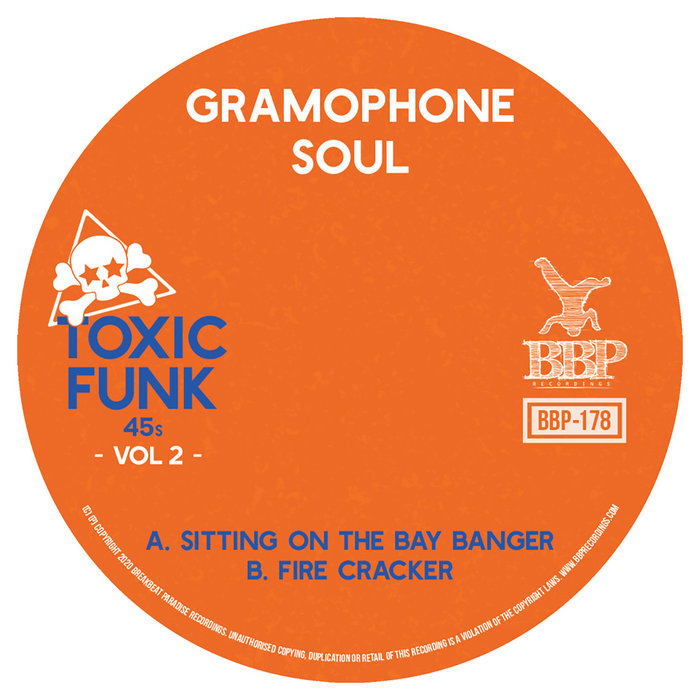
Fire Cracker – Breakbeat Paradise Recordings
this blog is GROOVY – check out great Soul, Funk, Jazz, Hip Hop, Bass, Breaks , Reggae, House n many more TUNES
Toxic Funk, a genre that’s as funky as it is controversial, isn’t just music – it’s a statement. Born in the late 70s amidst the rise of disco and the anxieties of a changing world, it took the gritty underbelly of funk and amplified it. Imagine Parliament’s psychedelic funk with a hefty dose of social commentary, then add in the raw energy of punk rock and you’ve got the essence of toxic funk.
A Rebellious Rhythm: Toxic funk wasn’t just about funky grooves; it was about speaking truth to power. Artists like Funkadelic, Sly & The Family Stone, and The Meters used their music to address racism, societal injustice, and the ills of the system. They weren’t afraid to get in your face, using their music as a weapon against the establishment.
Fun Fact: George Clinton of Funkadelic was so devoted to his music, he believed that it could heal the world. He even went on a “funkathon” – a 36-hour concert marathon – to prove it!
The Rise of the Outcasts: As the 80s dawned, Toxic Funk became the soundtrack of the disillusioned and the marginalized. Bands like Public Enemy, Bad Brains, and Living Colour pushed the boundaries of the genre, blending funk with hip-hop, hardcore punk, and even jazz. These artists didn’t just play music; they were activists, using their platforms to fight for social change.
Fun Fact: Public Enemy’s “Fight The Power” was used as the theme song for Spike Lee’s groundbreaking film “Do The Right Thing”, making it an anthem for the civil rights movement.
Beyond the Beats: Toxic Funk wasn’t just about the music; it was about the attitude. It was about standing up for what you believe in, even if it meant going against the grain. It was about expressing your individuality, however controversial it may be.
Fun Fact: Living Colour’s lead singer, Corey Glover, was so passionate about music that he once drove his car with his guitar strapped to the roof!
The Legacy of Toxic Funk: Though the term “toxic funk” isn’t officially recognized in the music industry, the spirit of the genre continues to resonate in today’s music. You can hear its influence in modern hip-hop, punk rock, and even electronic music.
Toxic Funk isn’t just music; it’s a reminder that music can be a powerful tool for change. It’s a reminder to stand up for what you believe in, no matter the consequences. And it’s a reminder to embrace your individuality, even if it means rocking out to a little bit of “toxic funk” along the way.

Fire Cracker – Breakbeat Paradise Recordings